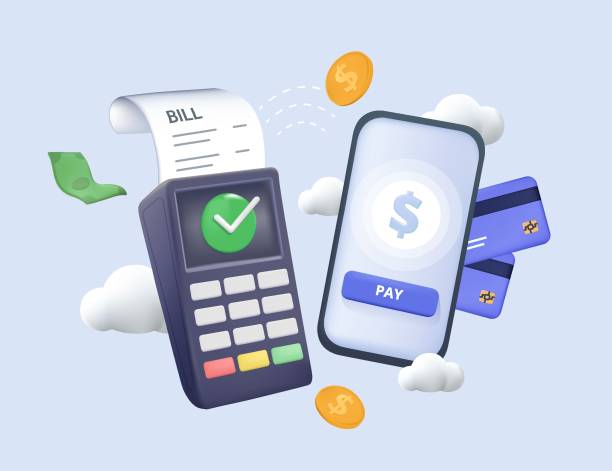Hey there, savvy entrepreneurs! If you’re diving into the world of e-commerce or thinking about expanding your online business, you’ve likely considered two of the biggest players in the game: eBay and Amazon. Both platforms have revolutionized how we shop and sell online, but which one is the right fit for you? So, let’s dive into the nitty-gritty of selling on eBay vs Amazon to help you make an informed decision.
Platform Overview
eBay: The Online Marketplace Pioneer
Founded in 1995, eBay is one of the earliest pioneers of online marketplaces. It started as an auction-style platform where individuals could sell their items to the highest bidder. Also, over the years, eBay has evolved to include fixed-price listings and even a “Buy It Now” option.
Amazon: The E-Commerce Giant
Amazon needs no introduction. Established in 1994, Amazon has grown from an online bookstore to the world’s largest e-commerce platform. With millions of products, Amazon offers a vast range of categories and attracts millions of buyers daily.
Fees and Pricing
eBay Fees:
- Listing Fees: eBay charges insertion fees for listing items, though you do get a certain number of free listings per month.
- Final Value Fees: A percentage of the item’s selling price (including shipping) is taken as a final value fee.
- Optional Fees: eBay offers additional services like promoted listings and listing upgrades for an extra cost.
Amazon Fees:
- Subscription Fees: Amazon offers two selling plans – Individual and Professional. Individual sellers pay per-item fees, while Professional sellers pay a monthly subscription fee.
- Referral Fees: Amazon charges referral fees based on the category and price of the item sold.
- Fulfillment Fees: If you opt for Amazon FBA (Fulfillment by Amazon), there are additional fees for storage and order fulfillment.

Traffic and Reach
eBay:
- Global Marketplace: eBay operates in multiple countries, providing sellers with a global audience.
- Search Engine Optimization (SEO): While eBay has its search algorithm, it’s generally less complex than Amazon’s, making it slightly easier for new sellers to get noticed.
Amazon:
- Vast Customer Base: With millions of daily visitors, Amazon offers unparalleled reach.
- Prime Membership: Amazon Prime members are loyal and often prioritize Prime-eligible listings, increasing your chances of sales if you use FBA.
- SEO and A9 Algorithm: Amazon’s search algorithm, A9, prioritizes relevancy and customer satisfaction, which can be a bit challenging for new sellers to master.
Customer Trust and Reviews
eBay:
- Feedback System: eBay has a feedback system where buyers can rate and leave comments about sellers, helping to build trust.
- Return Policies: Sellers can set their return policies, though they must adhere to eBay’s guidelines.
Amazon:
- Amazon Prime: Prime members often trust Prime-eligible listings due to Amazon’s reliable shipping and return policies.
- Customer Reviews: Product reviews play a significant role in influencing purchase decisions on Amazon.

Seller Support and Tools
eBay:
- Seller Hub: eBay provides a Seller Hub with tools for managing listings, analyzing sales data, and more.
- Community Forums: eBay has active community forums where sellers can seek advice and share experiences.
Amazon:
- Seller Central: Amazon’s Seller Central offers robust tools for inventory management, sales analytics, and advertising.
- Amazon FBA: Fulfillment by Amazon provides sellers with storage, packing, and shipping services, taking the hassle out of order fulfillment.
eBay vs. Amazon: Which is Better for You?
Choosing between eBay and Amazon boils down to your specific needs, goals, and business model. Here’s a simplified verdict to help you decide:
Choose eBay if:
- Flexibility is your priority: eBay allows you to set your return policies and offers a more straightforward fee structure with options for auction-style listings.
- Community Engagement: If you enjoy being part of a seller community and value direct interactions with buyers, eBay’s community-focused platform might be for you.
- Lower Start-up Costs: With fewer mandatory fees, eBay can be a more budget-friendly option for new sellers or those with limited inventory.
Choose Amazon if:
- Scale and Reach: If you’re aiming for massive exposure and want access to millions of potential customers, Amazon’s vast customer base is hard to beat.
- Convenience: Amazon FBA offers hassle-free fulfillment, taking care of storage, packing, and shipping, allowing you to focus on growing your business.
- Prime Benefits: If you can offer Prime-eligible listings, you’ll attract Amazon Prime members who are often more willing to buy due to Amazon’s reliable shipping and return policies.

The Middle Ground: Why Not Both?
Many successful sellers find that the best strategy is to diversify and sell on both eBay and Amazon. This approach allows you to:
- Maximize Reach: Tap into different customer bases and demographics.
- Test and Learn: Experiment with different pricing strategies, listing formats, and marketing tactics to see what works best for your products.
- Reduce Risk: Diversifying your sales channels reduces dependency on a single platform and mitigates the risk of potential changes in policies or fee structures.
Final Thoughts
While eBay and Amazon have their strengths and weaknesses, there’s no one-size-fits-all answer. Your success on either platform will largely depend on your adaptability, marketing efforts, customer service, and product quality.
So, whether you choose eBay, Amazon, or both, remember that e-commerce success is a journey, not a destination. Stay informed, stay flexible, and most importantly, stay passionate about delivering value to your customers.
Happy selling, and may your online business thrive!












